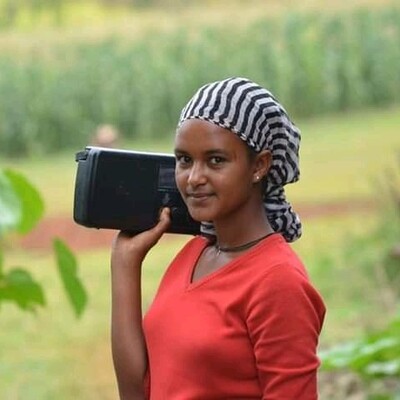
ILRI's Hung Nguyen discusses the importance of science communication in achieving One Health goals at the FAO science and innovation forum
On 18 October 2022, the Food and Agriculture Organization of the United Nations (FAO) and Wageningen University and Research (WUR) held an event titled ‘FAO and WUR transformative partnership–communication and harnessing science effectively’ as part of the FAO science and innovation forum.
The event brought together a variety of experts to discuss how science communication can be improved to help individuals, groups and initiatives from different disciplines across the animal, human and environmental health sectors effectively collaborate to address One Health issues.
One of the experts invited to speak at the event was Hung Nguyen, co-leader of the Animal and Human Health program at the International Livestock Research Institute (ILRI). As an institution focused on both livestock and human health, ILRI is dedicated to improving One Health approaches across the developing world. For the last decade, Nguyen has been upscaling ILRI’s One Health efforts by enhancing collaboration between scientists, policymakers and communities.
‘In One Health, transdisciplinary and interdisciplinary communication are crucial to bringing different disciplines and One Health actors together to address a common problem’, said Nguyen. He went on to explain the subtle but essential difference between transdisciplinary and interdisciplinary communication. Whereas interdisciplinary communication refers to the collaboration between various scientific disciplines, transdisciplinary communication refers to the combination of different types of knowledge, including scientific knowledge and non-scientific knowledge (such as local or community knowledge).
‘From my experience, communication between scientific disciplines (interdisciplinarity) requires an open mind spirit from each discipline’, said Nguyen, something he also refers to as ‘reducing discipline ego’. In other words, scientists cannot view their discipline as the sole solution to any one issue—addressing One Health challenges like antimicrobial resistance, zoonotic diseases, and food safety requires cross-disciplinary collaboration. Effective interdisciplinary communication also requires ‘a good One Health moderator who can integrate contributions from different disciplines as well as transparency and credit sharing between scientists’, said Nguyen.
Barbara Haesler, a One Health science and evidence lead at FAO, was another expert invited to speak at the event. Her ideas on collaboration mirrored those of Nguyen. ‘Given that in One Health we are working on complex challenges in systems, each organization or individual can only ever have partial knowledge of the system’, said Haesler. ‘That is why it is so important that we work together’. This interdisciplinary engagement between experts, groups and initiatives across the animal, human and environmental health sectors is foundational to the success of One Health efforts.
Transdisciplinary communication can be even more complex as it involves scientists communicating with non-academic actors such as policymakers and community members—a necessary step in ensuring One Health solutions make it out of the lab and into communities. As Nguyen explained, the first step in effective transdisciplinary communication is to adapt and simplify scientific language to ensure scientific findings are accessible to diverse audiences and usable by policymakers. Additionally, it is essential to integrate local and community knowledge into One Health approaches, so we can ‘develop solutions that are socially acceptable and quickly taken up by communities’, said Nguyen.
Wim van der Poel, research leader of ‘emerging and zoonotic viruses’ at WUR, built on Nguyen’s comments by highlighting the role of communications in ensuring One Health research culminates in on-the-ground impacts. ‘Effective science communication is crucial in disseminating and applying scientific knowledge in practical actions that can accelerate the achievements of the Sustainable Development Goals’, said van der Poel. He went on to call effective science communication a ‘two-way street’. To make an impact, organizations like WUR, FAO and ILRI must listen to communities to better understand the emerging challenges they face as well as the best avenues for addressing them.
Ultimately, ‘communicating science in a One Health context requires an open mind spirit, reducing the discipline ego, good coordination, transparency, credit sharing and the integration of local and community knowledge’, reiterated Nguyen as he concluded his talk. Taking these steps will help us better address One Health challenges by aligning and integrating different scientific disciplines across the animal, human and environmental health sectors as well as involving policymakers and local community members. By enhancing science communication, we place ourselves on the path towards improved human, animal and environmental health.
Hung Nguyen speaks at the FAO science and innovation forum.

















